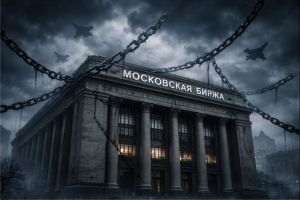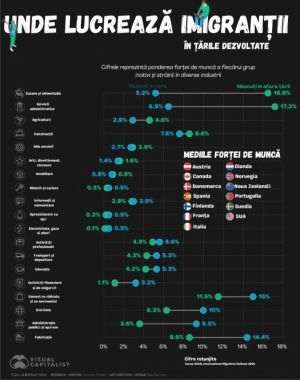• Interview with dr. Aurelian Dochia, economic analyst and financial consultant
Reporter: Some analysts are saying that, in order to exit the crisis, we need to stimulate consumption, by increasing revenues. Others think that such a measure would increase inflation even further, and consumption would remain affected. How can we stimulate consumption without creating negative effects in the economy?
Aurelian Dochia: I don"t think we should stimulate consumption. The crisis that we are in is the effect of measures intended to stimulate consumption, which have led to an increase in the GDP. Between 2005 and 2008, the factor which had the most influence on the rise of the GDP were the entries of foreign capital, which caused Romania"s foreign deficit to reach 14% of the GDP in just a few years. Furthermore, the authorities have raised the wages, pensions and welfare. In 2008, we have come to have a large budget deficit of 5% of the GDP. All these measures have caused the economy to grow beyond the sustainability level.
The crisis that we are in represents a fixing of the imbalances of the prior period, and serves the same role all over the world. Obviously few people notice and admit this. I am concerned about the promises made by politicians, who claim that they can and should take steps to fight the crisis.
Romania has somewhat been one step behind, because the major powers have taken active steps towards fighting the crisis. Major deficits have been created, and they have taken on monetary and fiscal policies, which led to an artificial stimulation of the economy, which can only lead to situations of crisis. All these measures keep making the world"s economy fragile. The governments have taken over all the excesses of the private sector, meaning that the budget deficits have now reached very high levels. Central banks have increased the amount of money in circulation, using various methods. It is a bit misleading to say that they have printed money, because real money is just a small part of an economy"s money supply. Most of it is deposit money, which is found in banks. By acquiring toxic assets from bankrupt banks, the central banks have caused the amount of money in circulation to increase. Freed from these assets, commercial banks can continue to lend and to create money. This is what is happening now, and even though this is being presented as a measure intended to actively fight the crisis, it is in fact a program to prepare a new crisis, first and foremost on the international level.
Reporter: But in the case of bankrupt banks, if the state didn"t intervene, we would probably see dramatic effects on the economy...
Aurelian Dochia: If their calculations concerning the risks taken on are proven wrong, banks have to bear the consequences. Unfortunately, the system is designed in such a way that banks are relying on state aid as a last resort. There are financial institutions which are too big to be allowed to fail, because this negatively affect the economy. This is precisely why banks are overreaching and taking on higher risks. This way, the vicious circle is just being extended. Next time we will end up in the same situation, and banks, once we get past this crisis, will boost lending again. Let"s not forget that in Romania, ID-card consumer loans stimulated consumption beyond the economy"s tolerance level. Between 2005 and 2008, the Romanian Central Bank has tried to make loans more expensive. Everyone was complaining that we had the highest mandatory reserves of Europe. However, the financial system is now internationalized, and parent-banks can transfer liquidity to their local banks. The NBR has been unable to do anything during the reviewed period and I doubt it"s going to be able to do much from now on. I think that the correct path that Romania as well as other countries would be for the state to gradually exit the financial sector, and banks should understand that there is no guarantee from the state.
In Romania, there have been some cases of banks going bankrupt in the 90s: Bancorex, Banca Agricolă, Credit Bank, Dacia Felix, Banca Albina... At the time, the safeties that we have now didn"t exist. Depositors were cautious. Even if a bank would offer them 2% more on deposits, they would start asking questions. They had learned to calculate the risk they were taking on. Depositors today are no longer interested in these aspects, because they are ensured by the Bank Deposit Guarantee Fund.
Reporter: What would be the model for sustainable growth of the GDP, in order to avoid the economy overheating again?
Aurelian Dochia: The ideal thing would be to have a balanced growth. It is currently said that the ideal growth model is that which is based on exports, because the growth of countries such as China or Germany is based on exports. Yes and no. Growth based on exports is just as vulnerable because the foreign markets can crash as well - just as major commodities producers are now discovering. There are also ideas saying that investments should be stimulated. And this outlook to me is inadequate. In a normal economy, it is consumption that helps direct investments. When investments are thus channeled, entrepreneurs invest in increasing production capacities in a natural manner, without any stimuli (even though, no one is going to turn them down if they are offered). I think a growth rate of 4-5% a year for the GDP, starting with 2012, 2013, would be the most adequate. Any stimulus of the growth above this level could lead us into a new crisis.
Between 2005 and 2008, economists were talking about a potential growth of 5-6% a year. In Q3 2008, Romania"s GDP had increased 9.1%. It is clear that the economy was overheating. A danger which, to be honest, the IMF had warned us against ever since back in 2005. The Fund said that all the measures for stimulating the economic growth at the time could be harmful. One factor that had a significant influence on the growth of the GDP was the introduction of the 16% flat tax rate in 2005, which replaced the previous progressive taxation system, which went up to 40%. The fall in the level of taxes stimulated consumption as well as investments. In many ways, the introduction of the flat tax rate was a good measure, but it should have been compensated by an anti-cyclical budget policy, which would have allowed the creation of budget surpluses. In fact, the budget policy contributed to the additional stimulation of the economy through an increase in spending: the number of public sector employees increased, together with an increase in their wages, welfare expanded, pensions were raised etc. The budget deficit kept rising, from 1% of the GDP in 2004, to 5% of the GDP in 2008.
Reporter: What steps should the authorities take or avoid, in order to prevent a relapse into recession?
Aurelian Dochia: Politicians are making all kinds of promises, which I am afraid aren"t exactly the best way to get us out of the crisis. I think the authorities should have the strength to continue doing what they did so far to correct the fiscal imbalances accumulated in the previous period. The foreign trade deficit corrected itself very extraordinarily fast. It got from almost 14% of the GDP to 5%. And the budget deficit entered a corrective slope after peaking out in 2009. If we succeed in reaching the target of 4.4% this year, it would be a step forward. The downward trend in spending cuts must continue in the following years. The authorities should avoid populist measures such as raising wages, pensions, and stimulating lending and they should continue to reduce spending. This process has already begun with wages, welfare and pensions. We can see however, that it is a very difficult process, politically and socially, and the discontent it causes and the opposition to it are normal.
Reporter: What economic growth do you expect this year, and what are the factors that could disturb it?
Aurelian Dochia: I am expecting an economic growth of 1.5-2% this year. Obviously, there are some factors that could obstruct this advance. I think the most dangerous factor is the situation in Greece, which it at risk of defaulting on its sovereign debt, unless it gets consistent international support, which is not yet fully assured.
The most drastic scenario assumes that the banking system would in Greece would be severely affected, which is when we would see consequences on the Romanian branches of some of the Greek banks. I don"t see any risk of bankruptcy for any Romanian banks, but we may see acquisitions and mergers.
The thing I find the most important is that the situation in Greece will contribute to hiking the cost of borrowing in Europe, as banks and countries will be forced to pay higher interest rates to attract money. Moreover, we are already seeing a discrepancy between the interest rates which countries found at the opposite ends of the spectrum such as Germany and Greece can borrow at. Even though Romania has entered a favorable trend when it comes to interest rates it pays on borrowing, and the market sentiment seems to be going in the same direction, any foreign or domestic extern slip-up could cause the cost of borrowing to rise. This means we would have more expensive loans. Such an evolution would make it more difficult to finance investments and consumption. And, by default, the prospects for growth would be diminished.
The crisis of Greece and of the other Eurozone countries is a true test for the very existence of the common currency. There are scenarios that expect a downsizing of the Eurozone to a smaller number of countries, more similar in terms of economic performance. However, major efforts are being made on a political level to find solutions for overcoming this crisis. I hope with all my heart that this project of the European Union will weather this moment successfully.
As a conclusion, in the short term, Romania"s economic growth could be affected by the situation in Greece and in the Eurozone. Domestically, the first threat are the elections of 2012. Unless the process for rationing and streamlining expenses will continue, there is the risk that, somewhere in the future, a tax hike will be needed. If this were to happen, we will see negative effects on income, consumption and private spending.
What is important is for the economy to rise at a slow rate, by keeping the macro-economic balance. This is the task of the central authorities. As for entrepreneurs, they shouldn"t be influenced in their process of making investment decisions. Not even stimulated.
Aurelian Dochia: The crisis that we are in represents a fixing of the imbalances of the prior period, and serves the same role all over the world. Obviously few people notice and admit this. I am concerned about the promises made by politicians, claiming that they can and they should take steps to fight the crisis.
•
Aurelian Dochia: Central banks have increased the amount of money in circulation, by acquiring toxic assets from bankrupt banks. Freed from these assets, commercial banks can continue to lend and to create money. This is what is happening now, and even though it is being presented as a measure intended to actively fight the crisis, it is in fact a program to prepare a new crisis, first and foremost on the international level.





























































